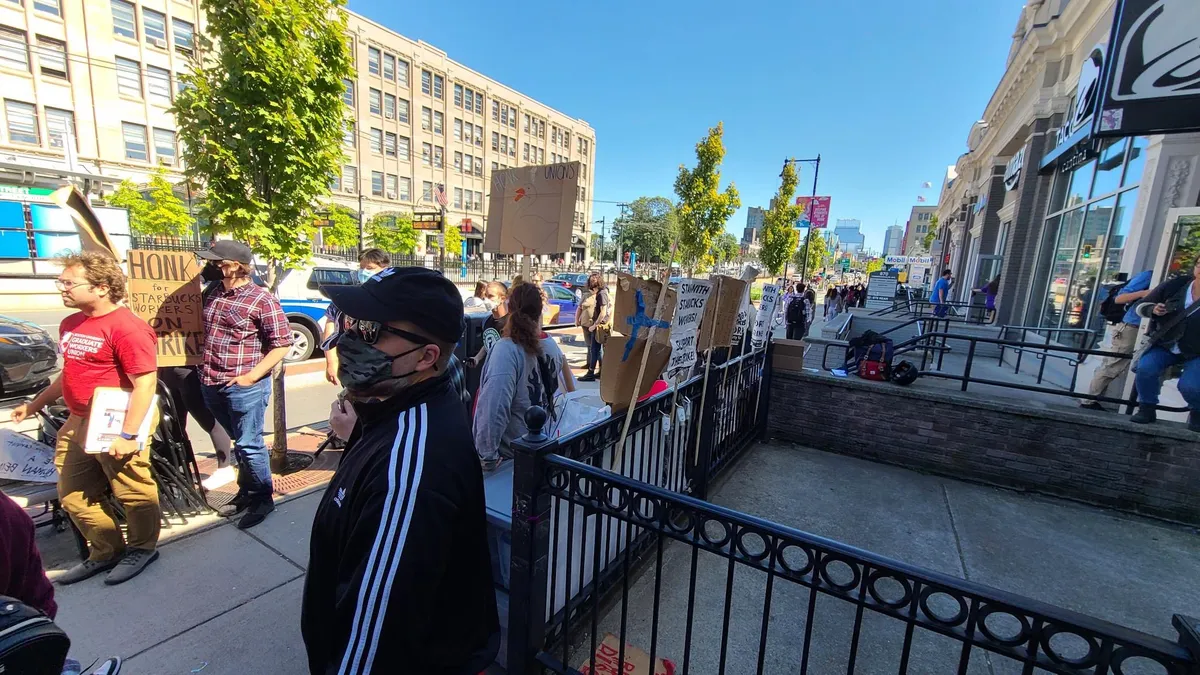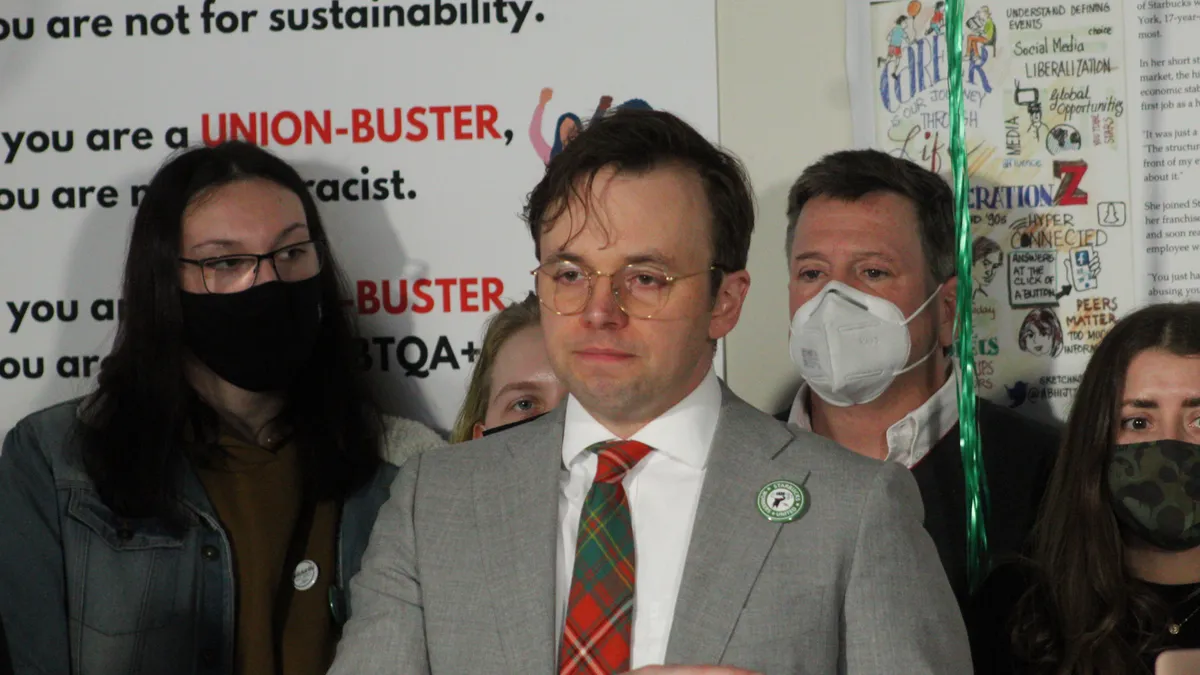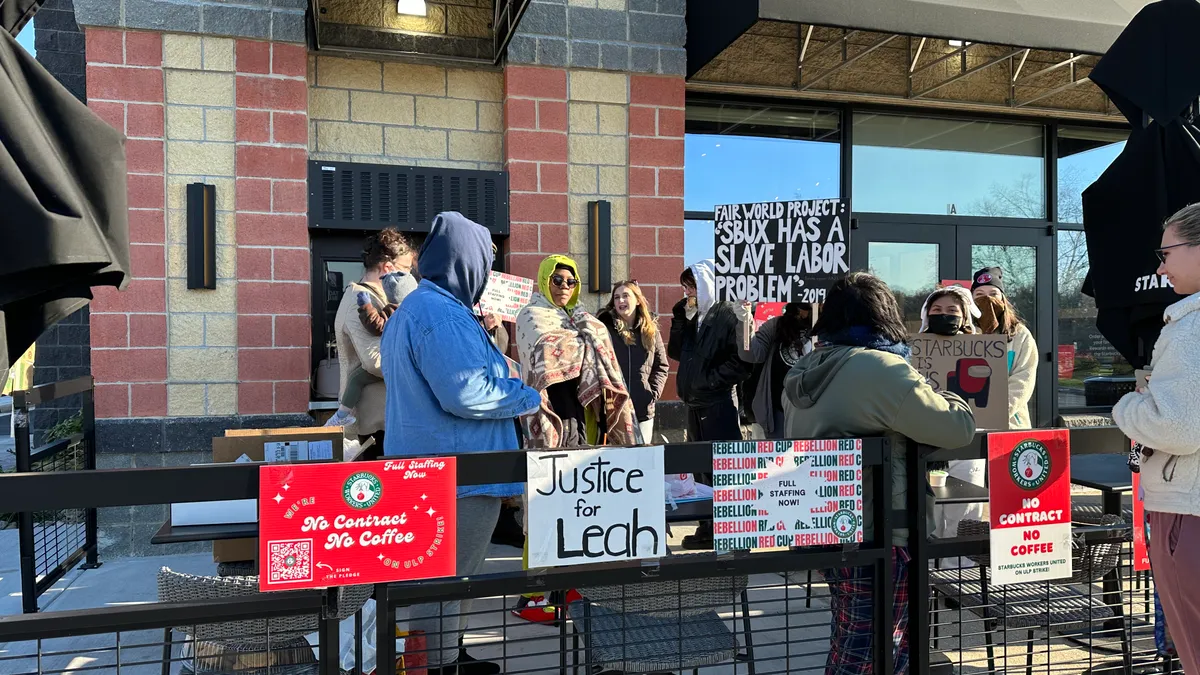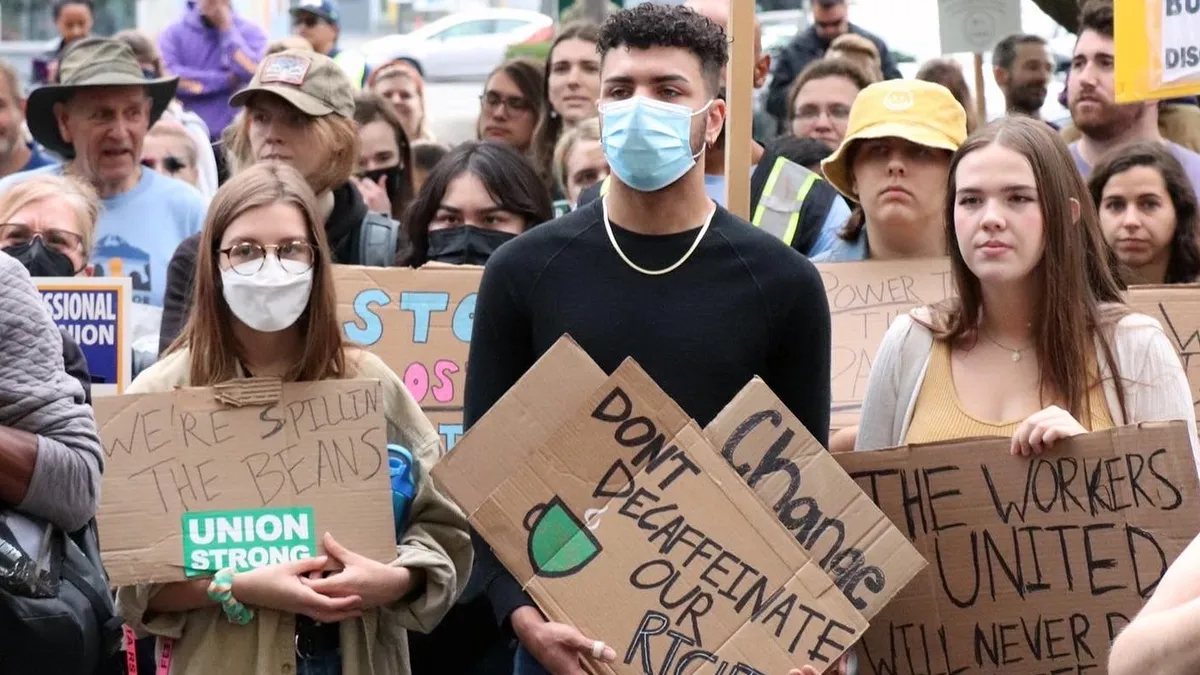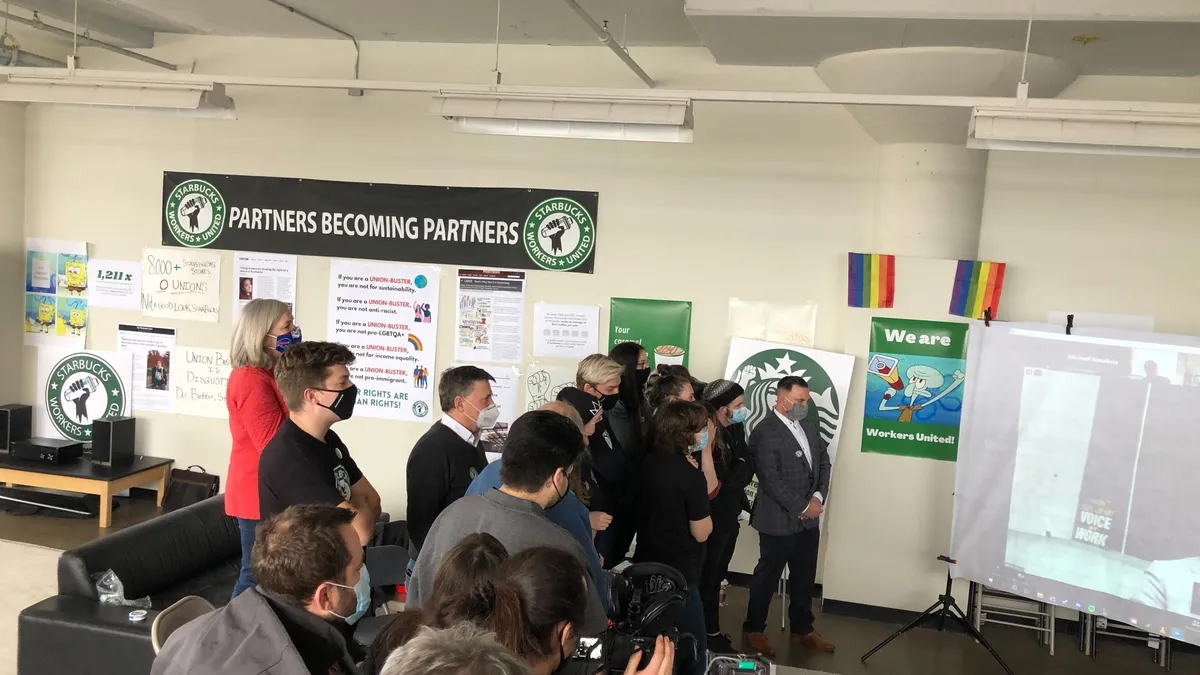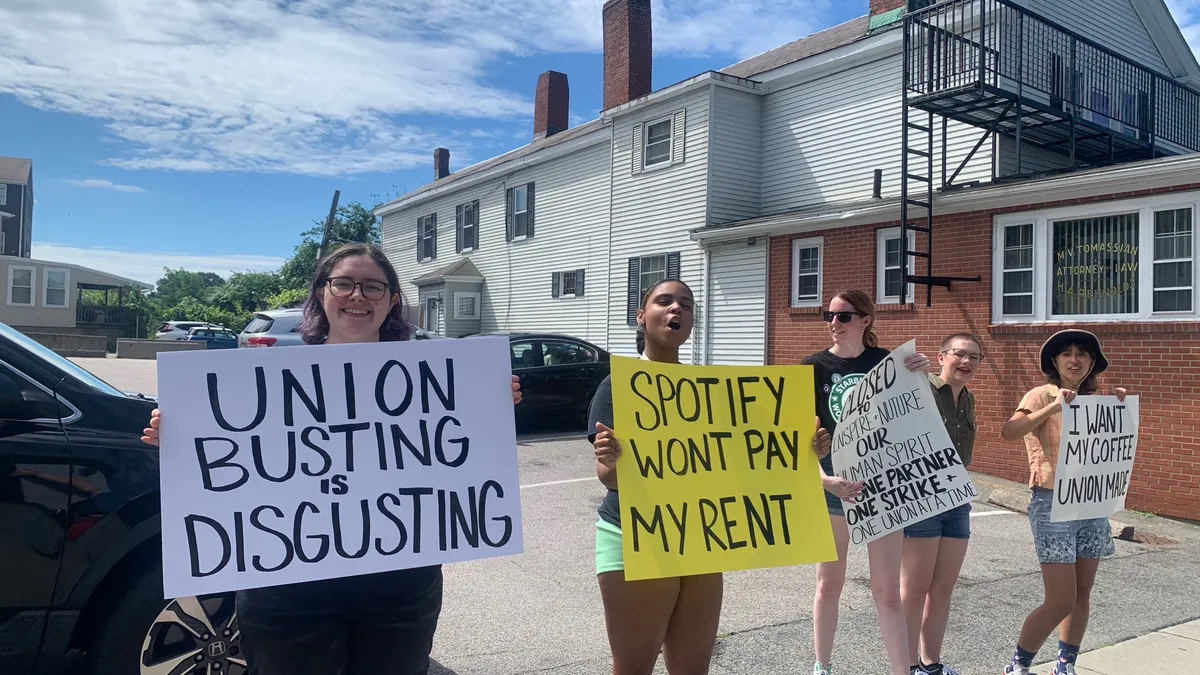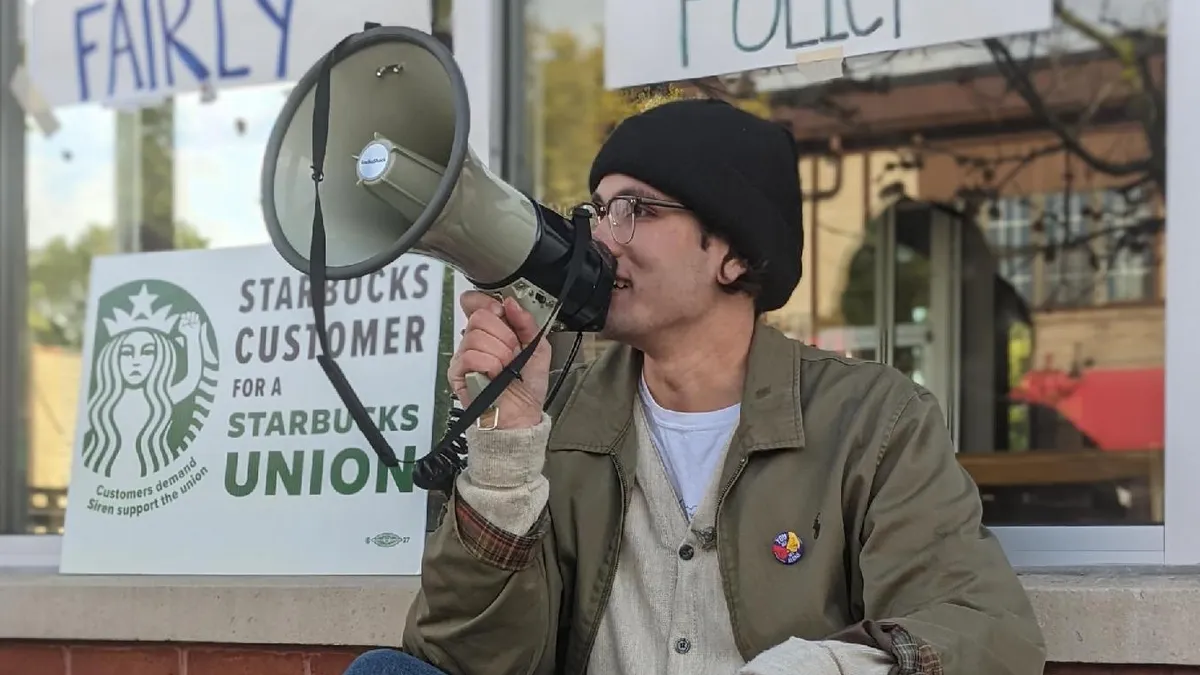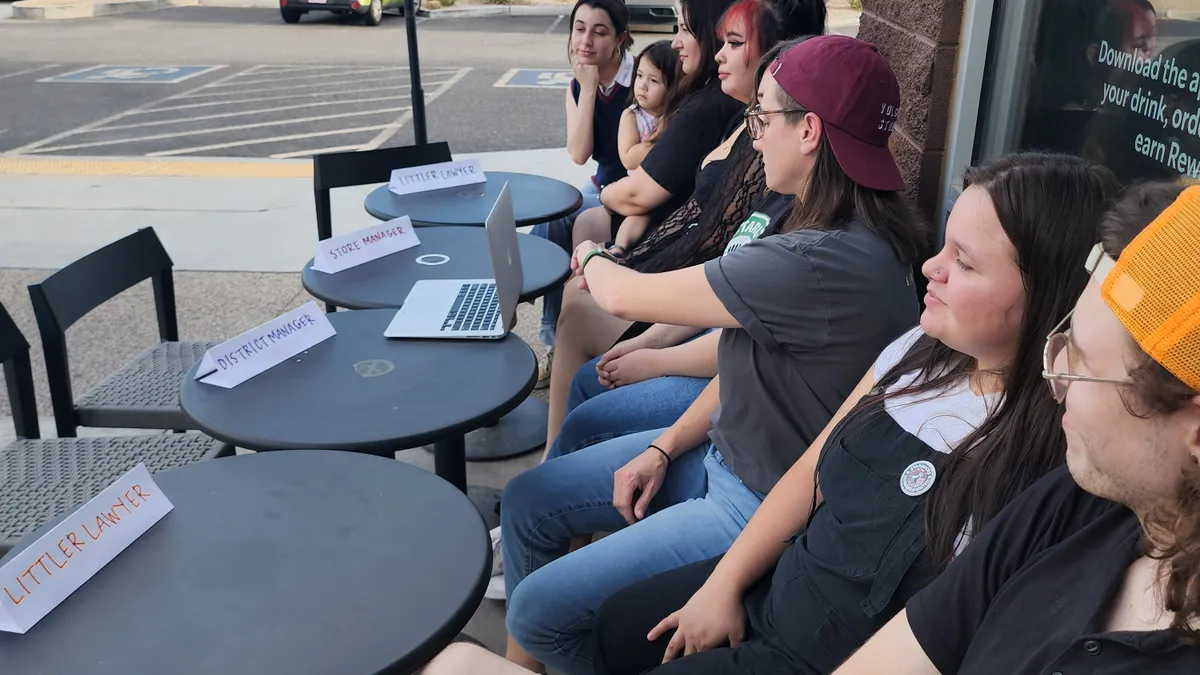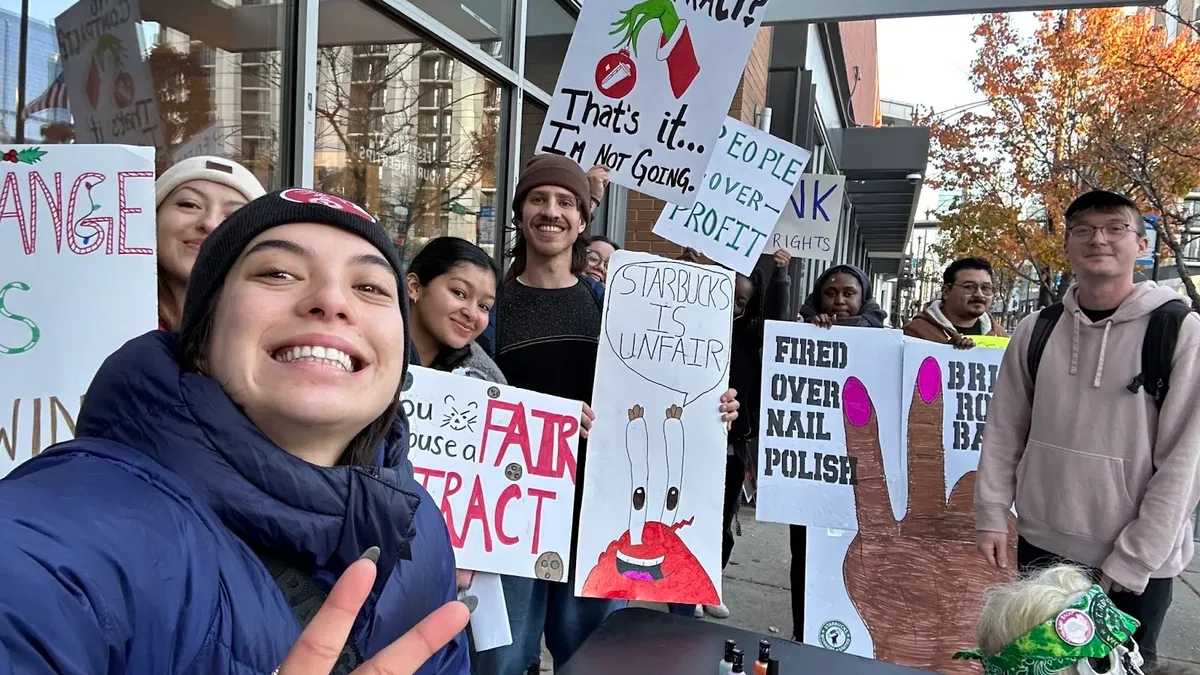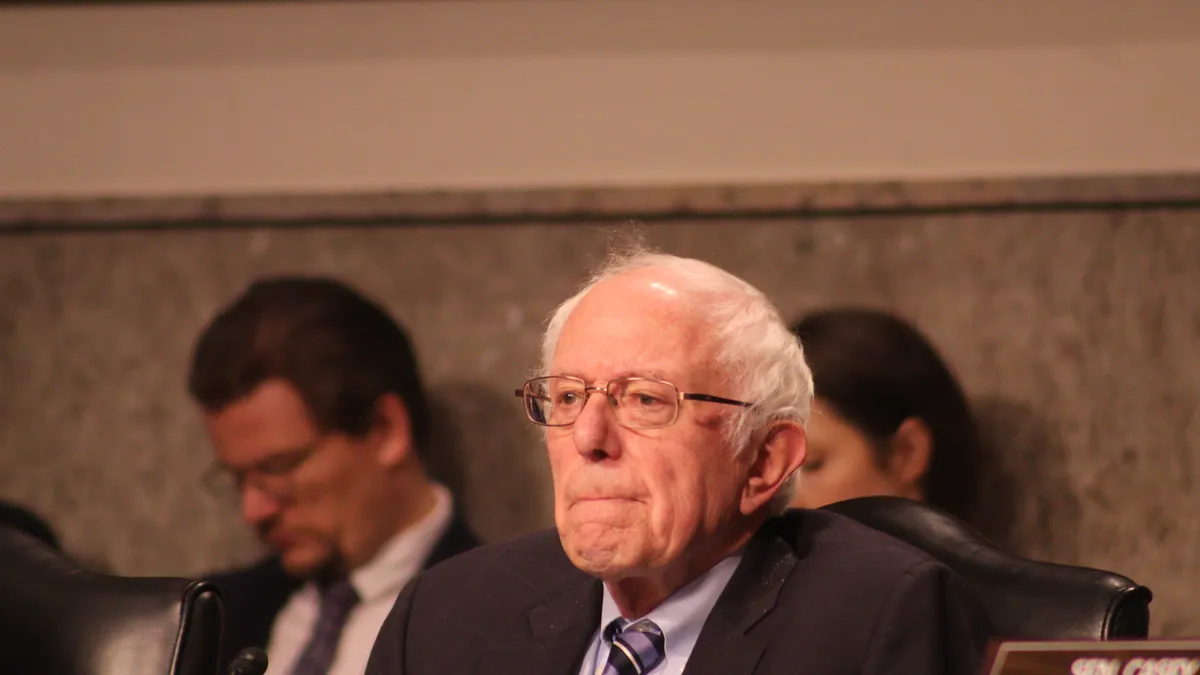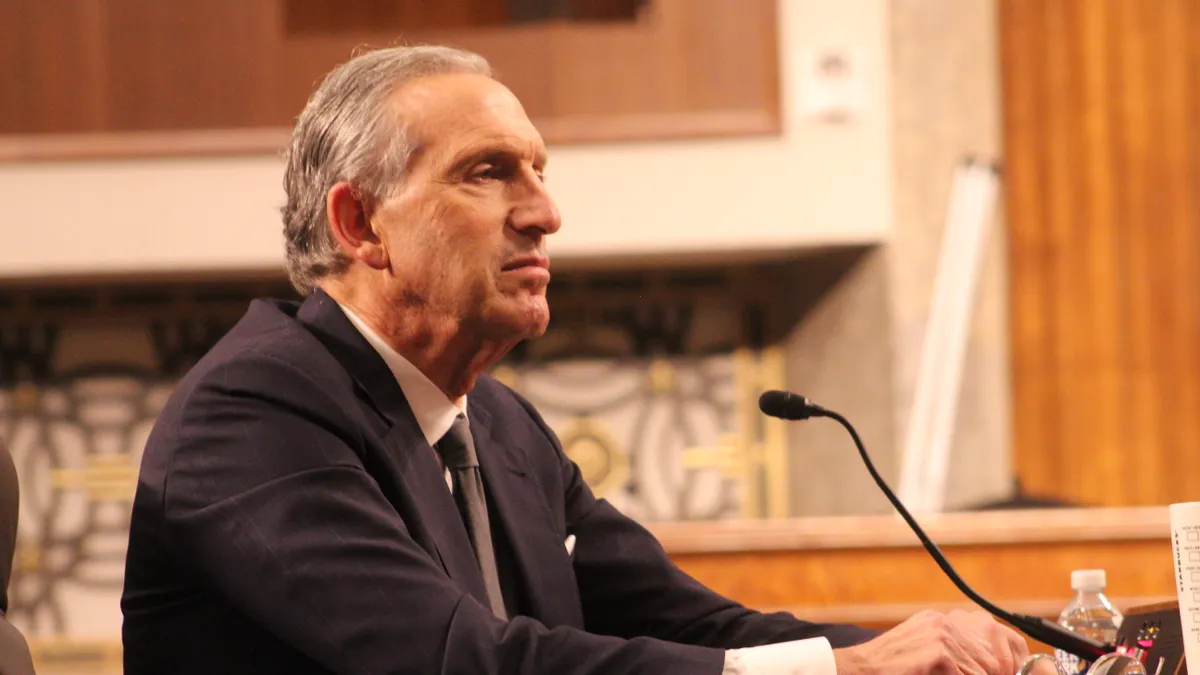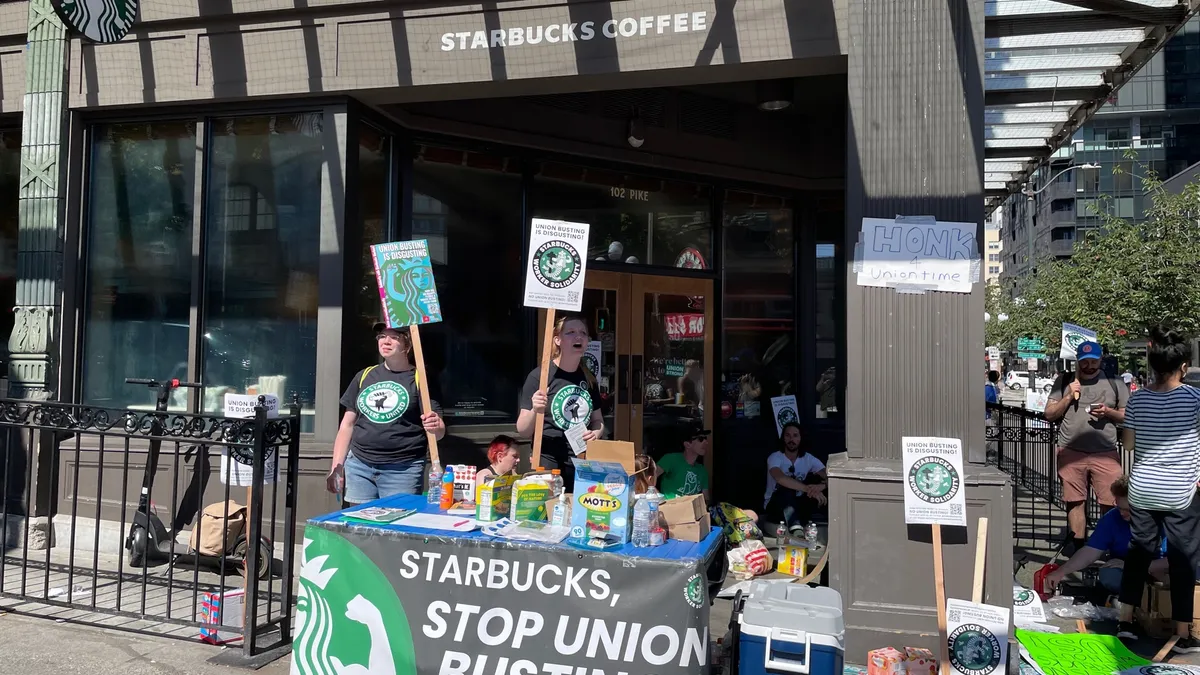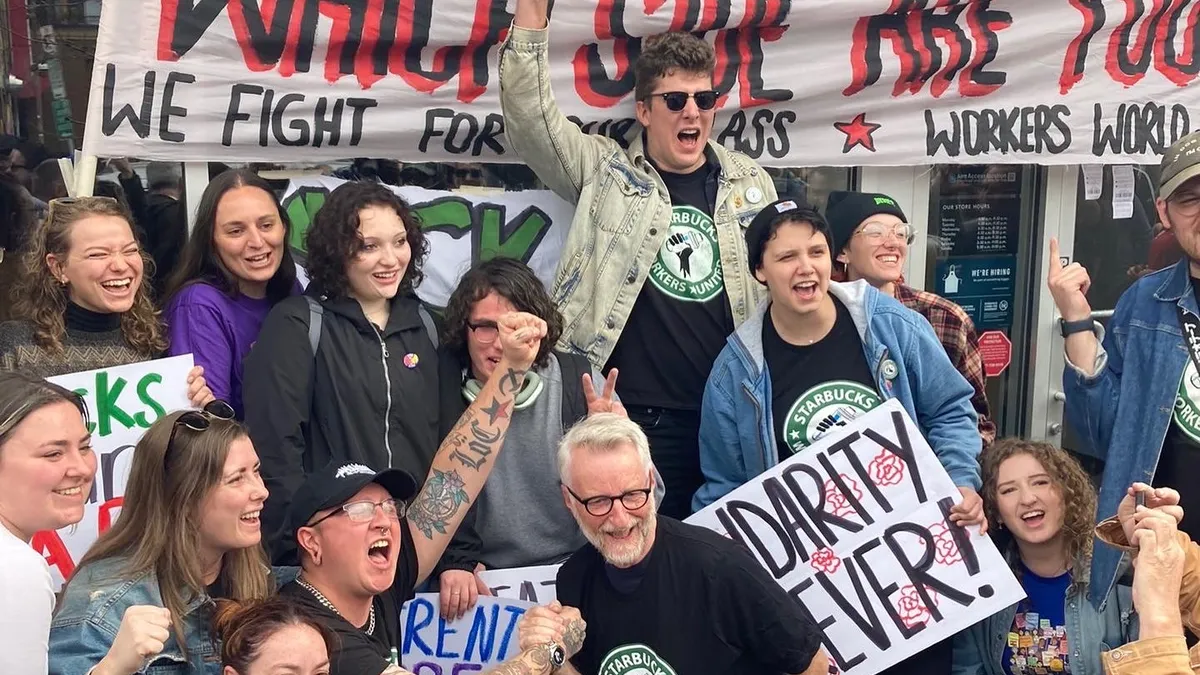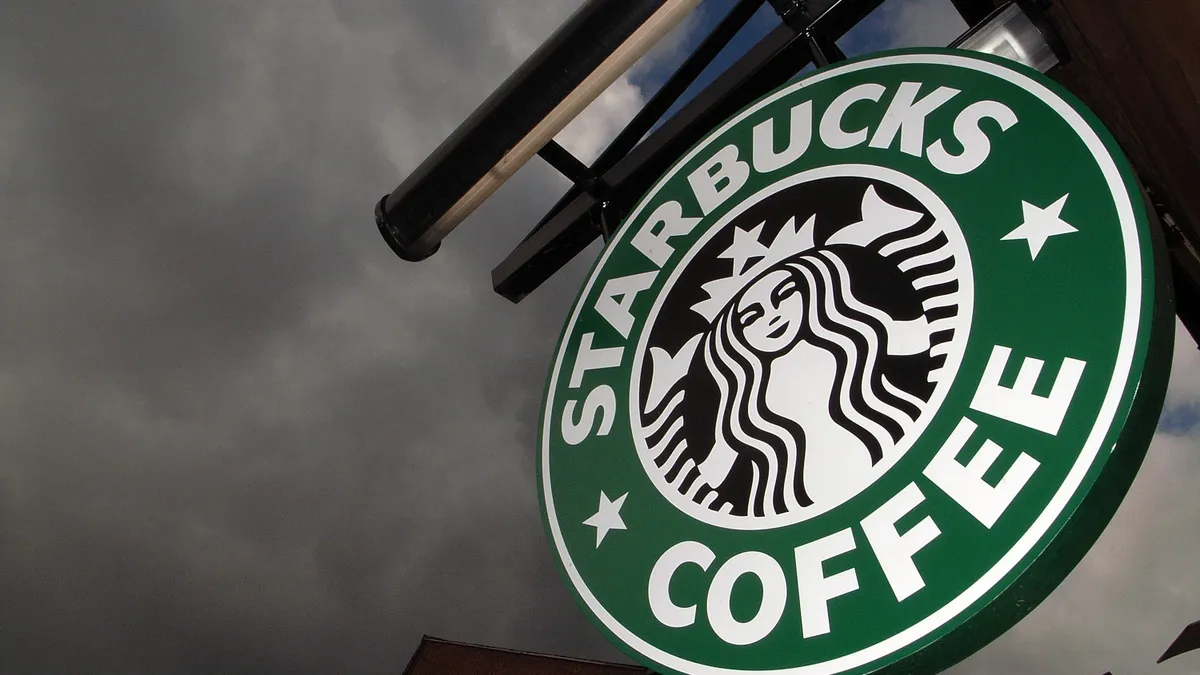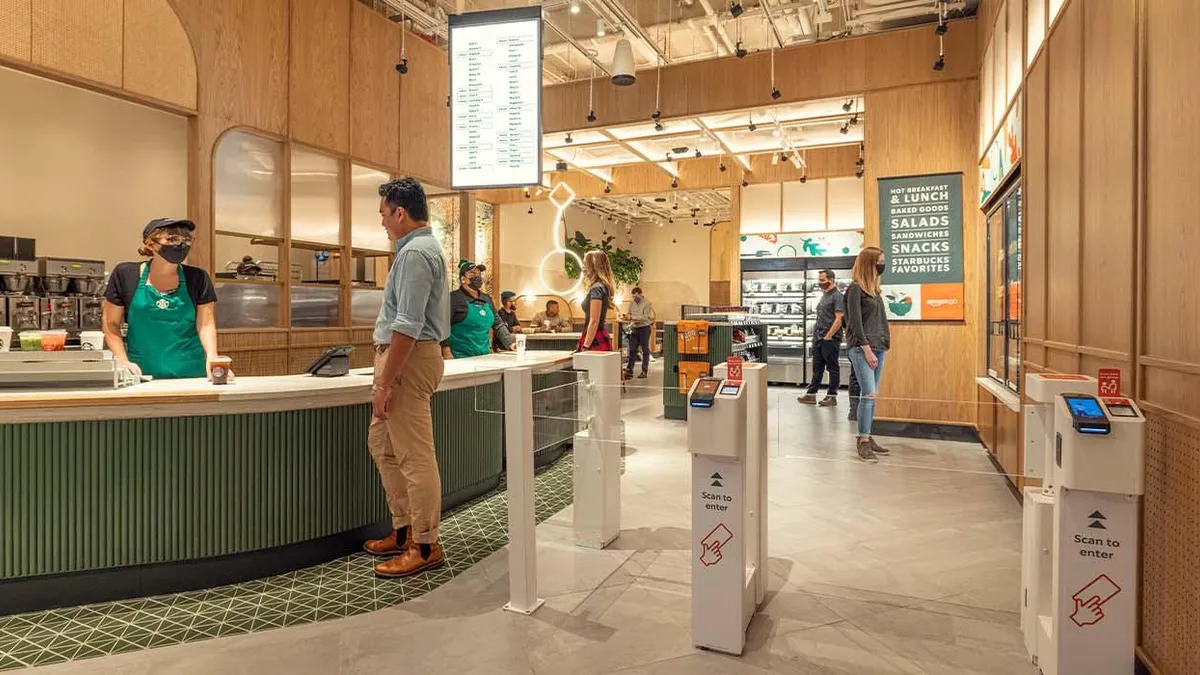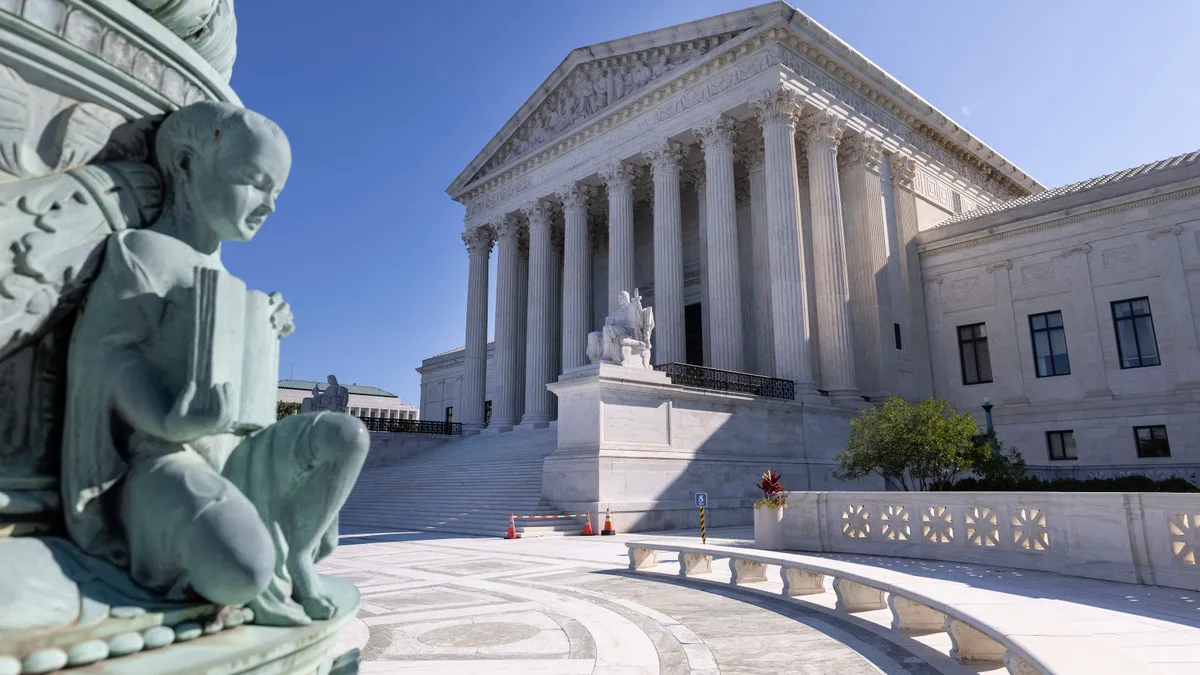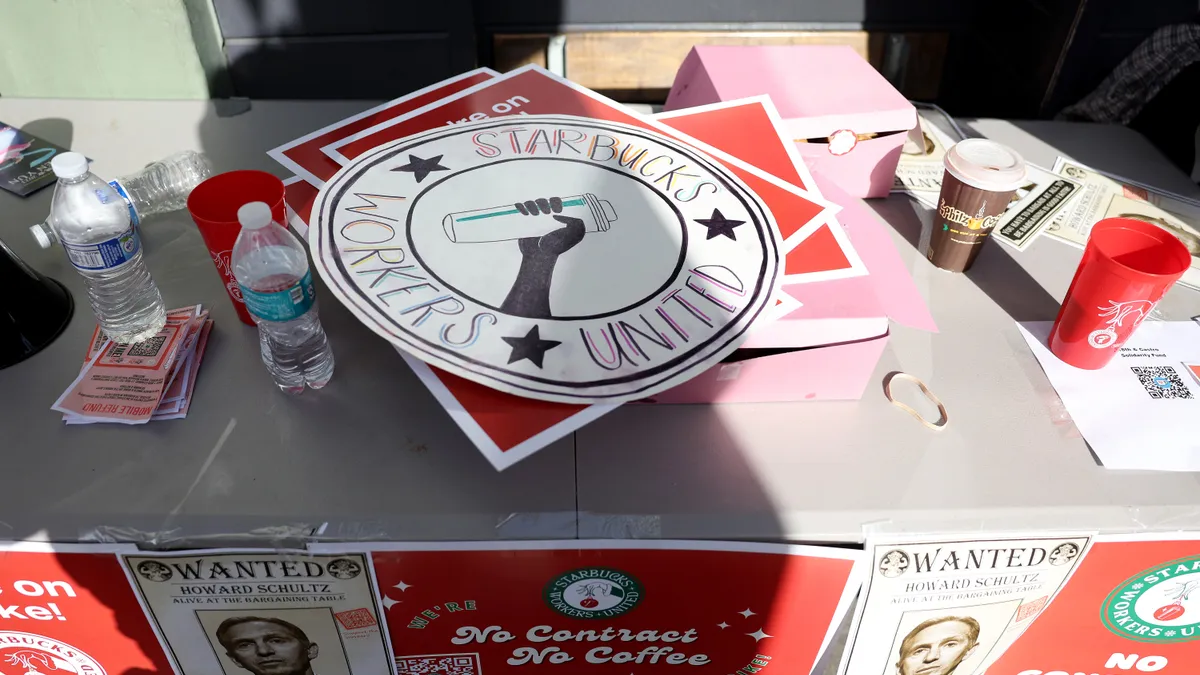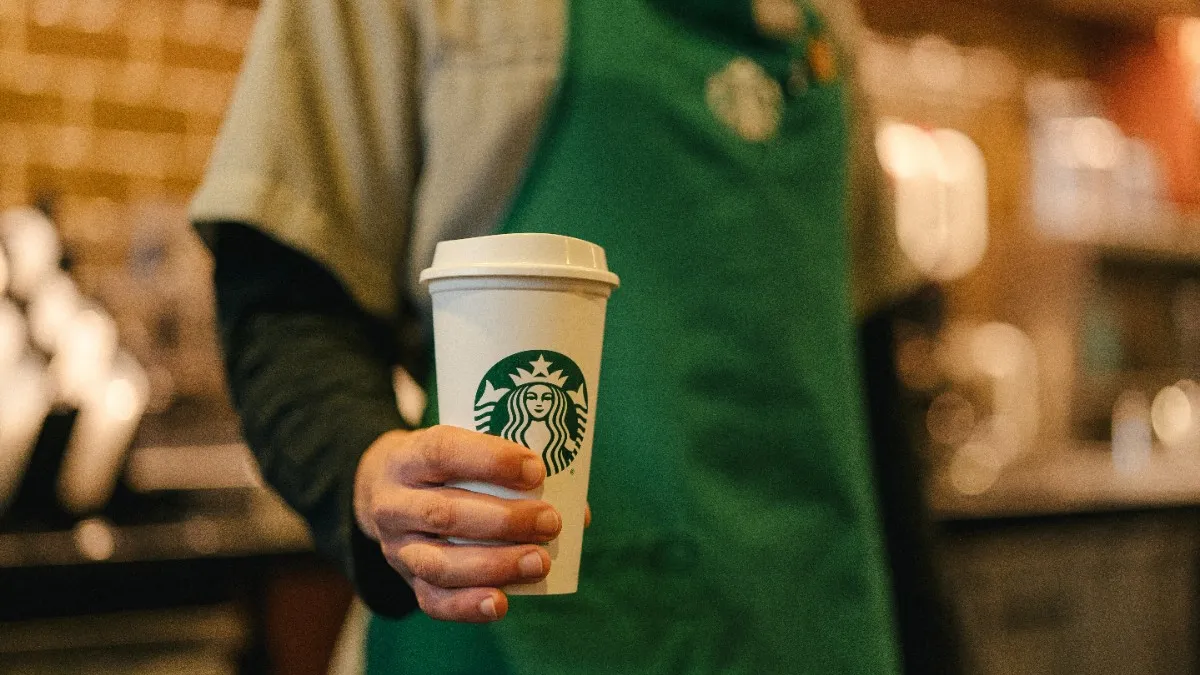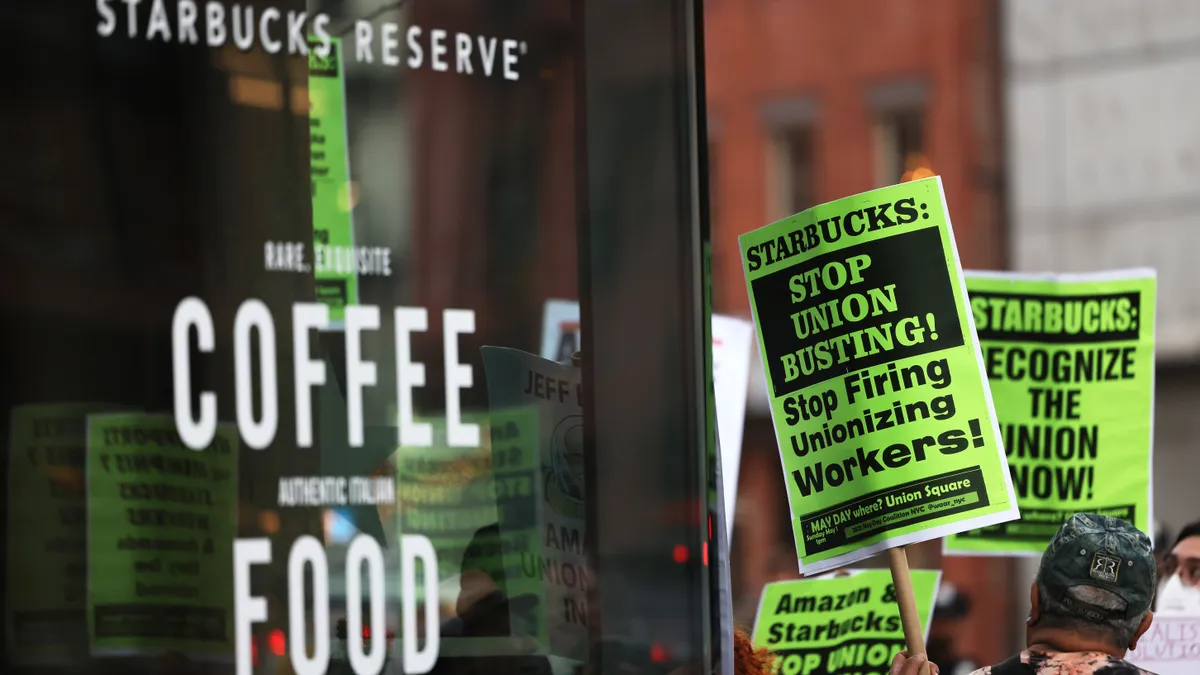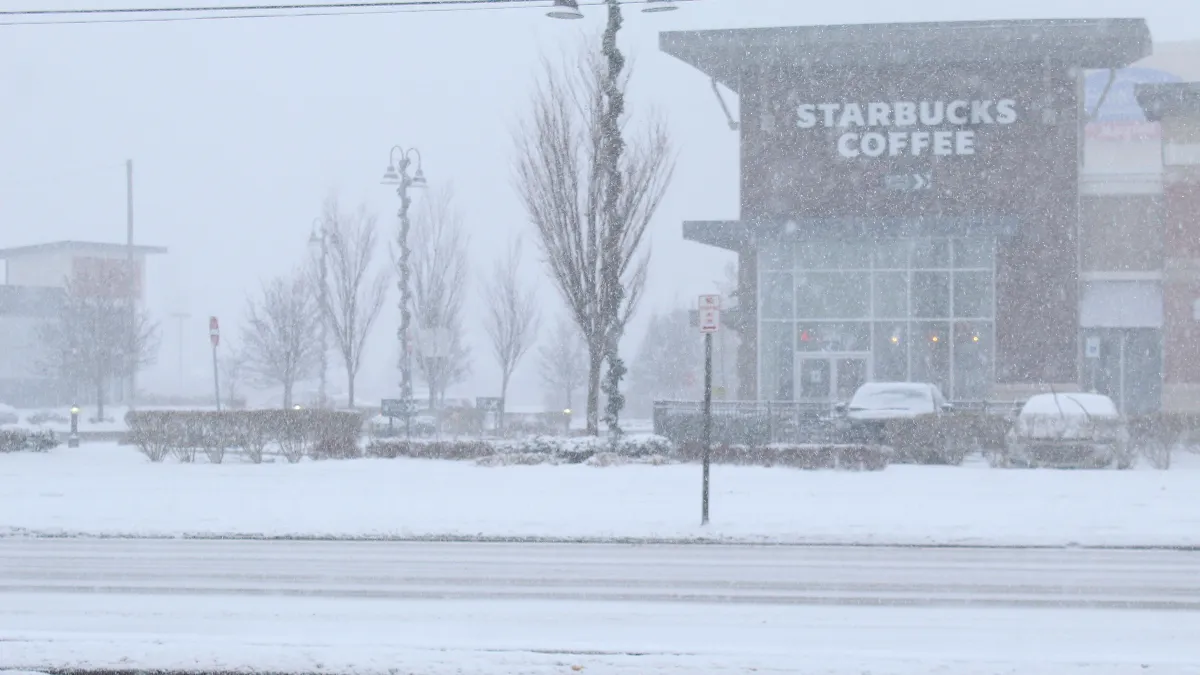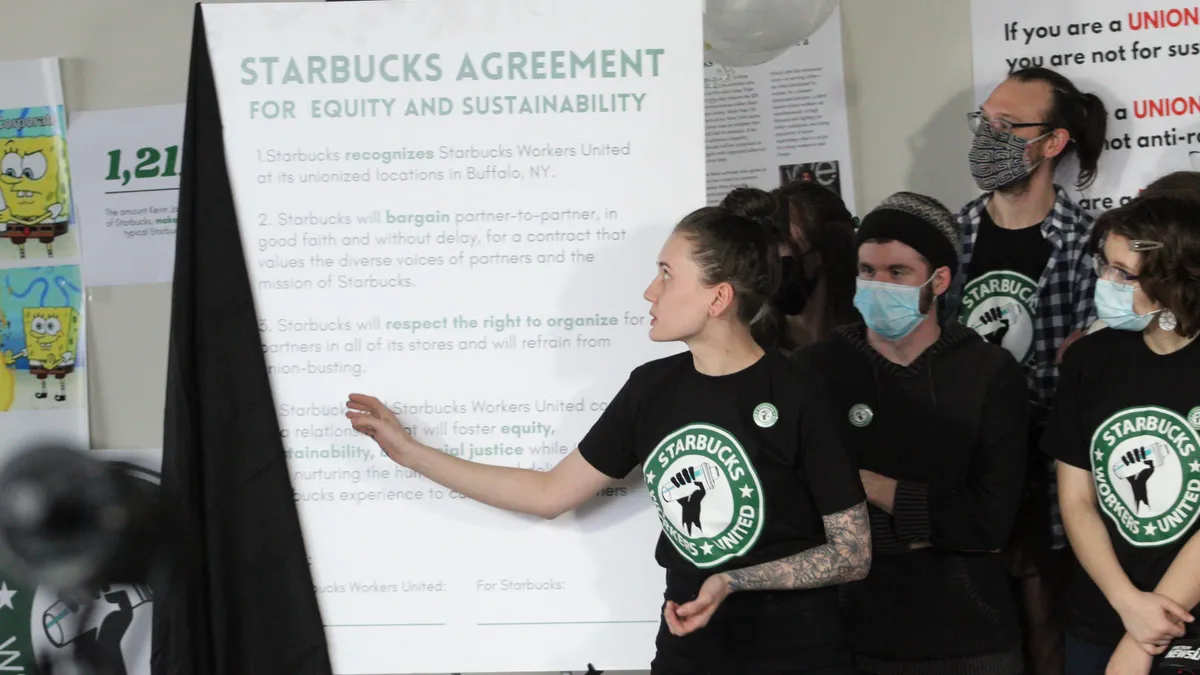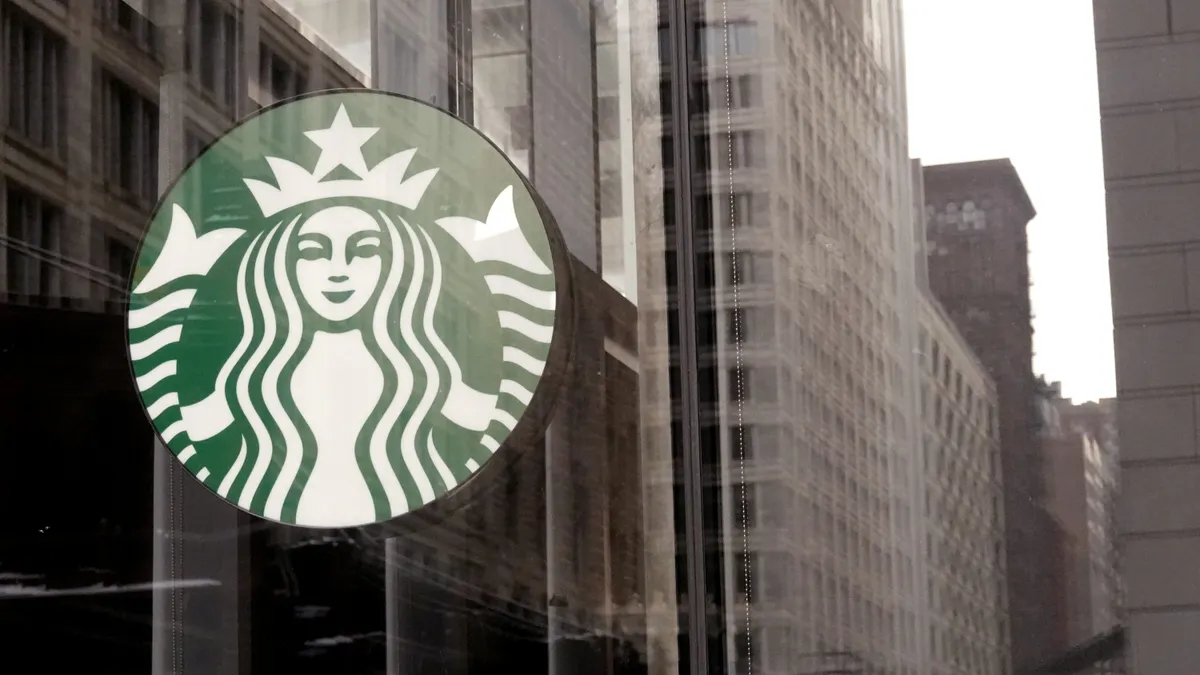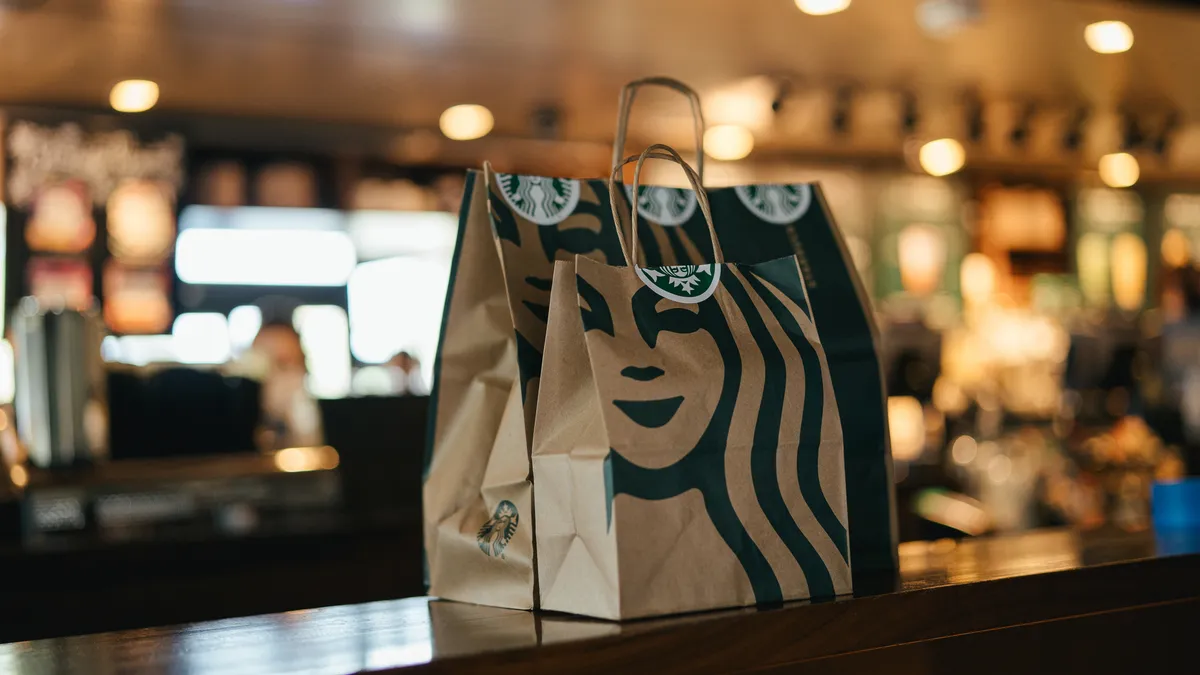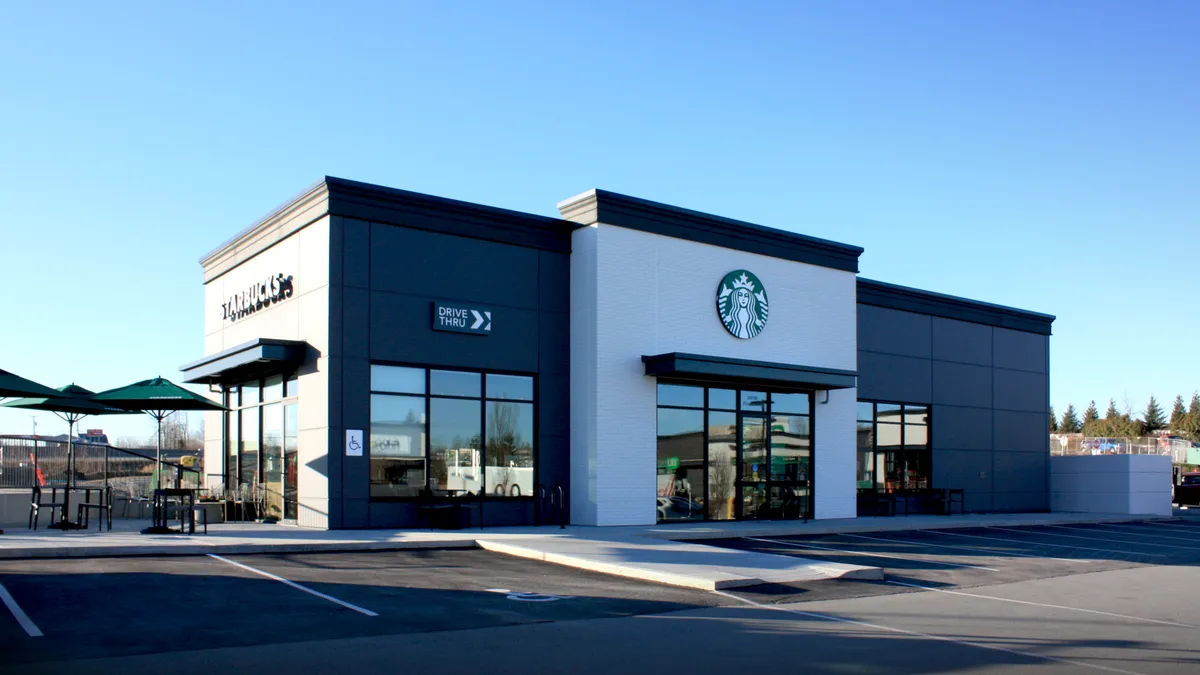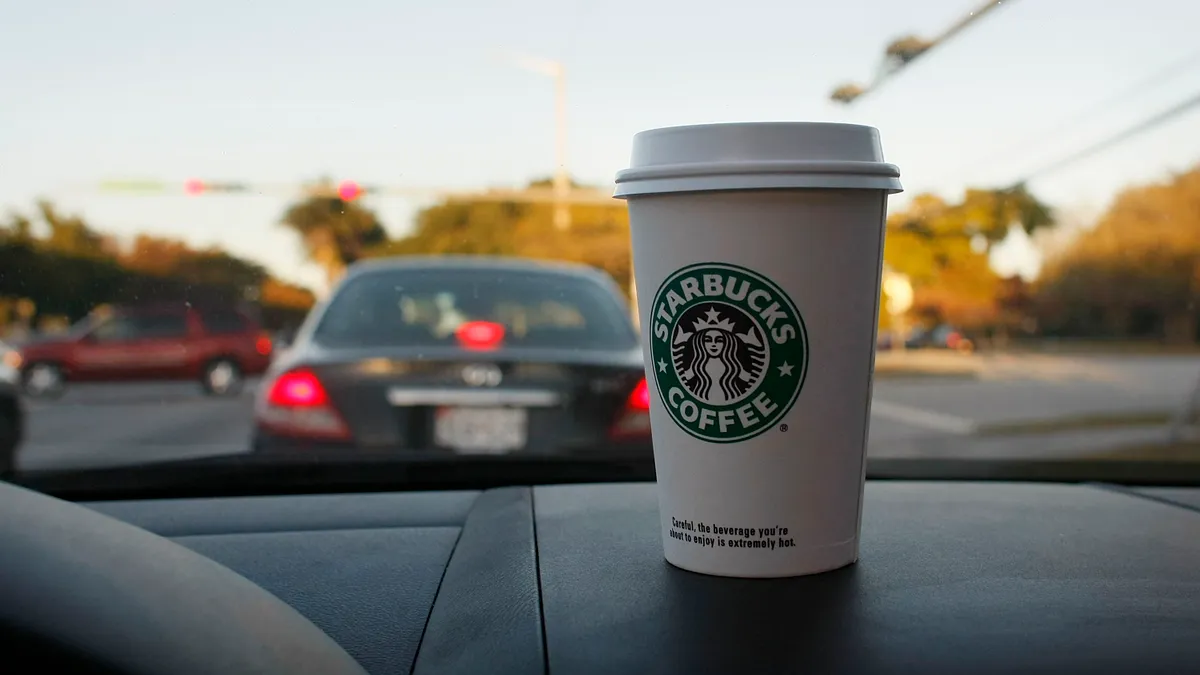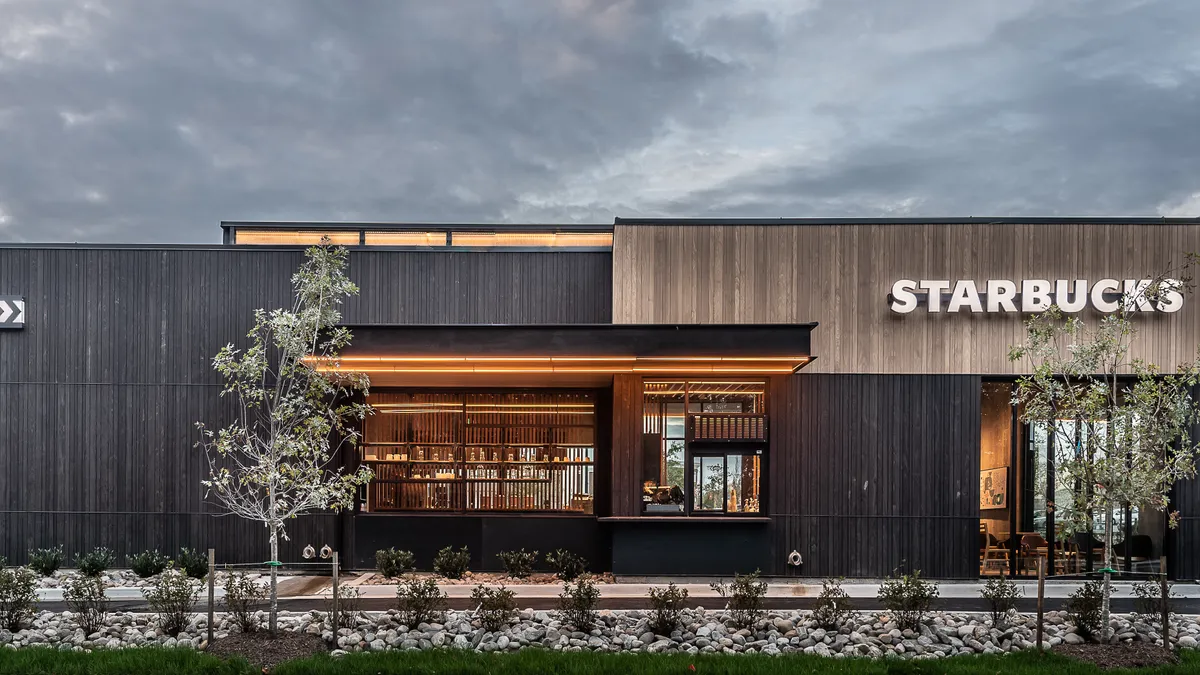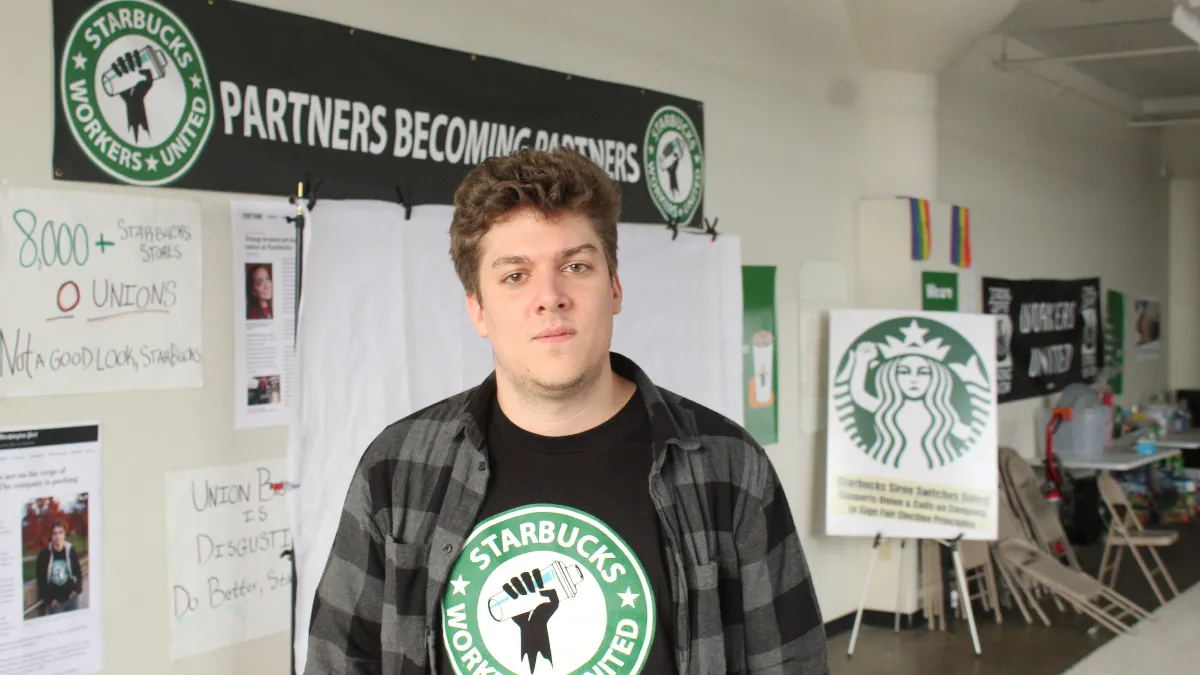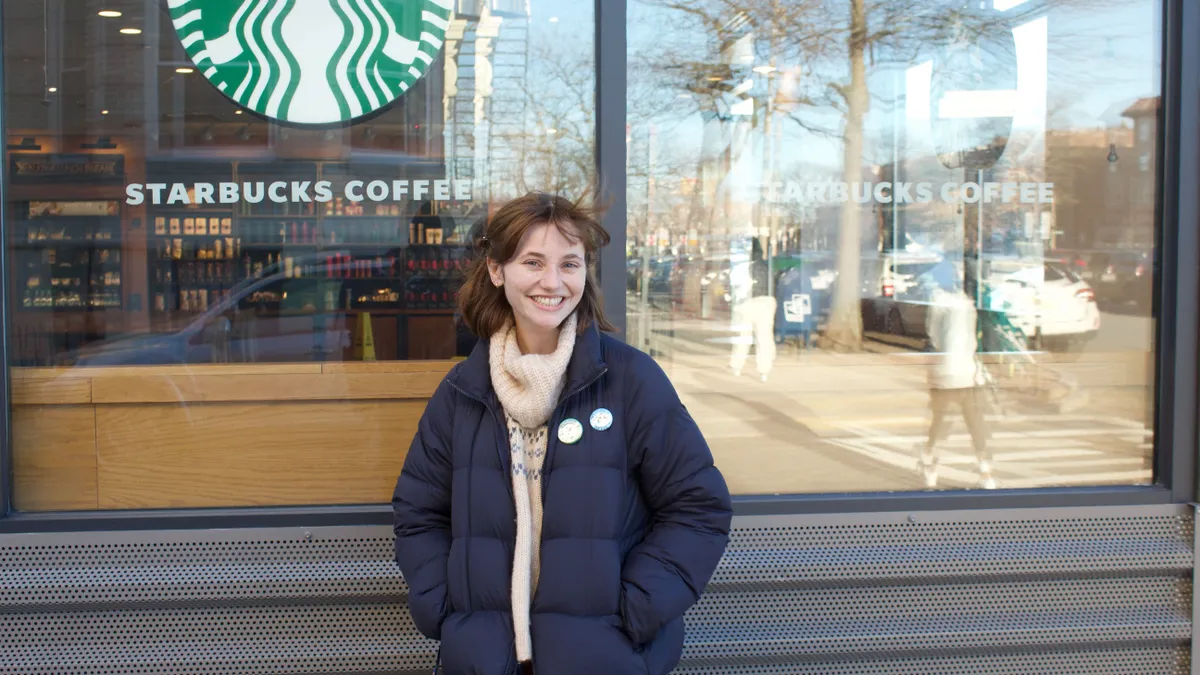Dive Brief:
- The longest strike in Starbucks’ history ended Wednesday after 64 days. Both the union and the coffee chain claimed victory in the strike at a Boston Starbucks.
- Starbucks Workers United members agreed to end the strike after workers received a weekly partner update stating that a July 11 policy on minimum employee availability would not be enforced at stores that unionized before that date.
- Starbucks denied that the policy was ever enforced at union stores. A Starbucks spokesperson told Restaurant Dive the company never negotiated with workers and had made no concessions.
Dive Insight:
Spencer Costigan, a shift manager and strike leader at the Commonwealth Avenue Starbucks location, said a manager informed store workers in July that workers would be required to increase their availability. Costigan said that policy, combined with understaffing and alleged discrimination, prompted workers to walk out on July 18.
In a weekly message to employees circulated by Starbucks on Sept. 18, the company said it would not enforce the July 11 minimum availability policy at stores that had union representation or activity before July 11. Starbucks Workers United members in Massachusetts cited that announcement when claiming victory in the strike.
Starbucks said public statements by the union claiming victory in the strike were not true, that the company had not conceded anything.
“The partners at this location are returning to work under the same conditions at the time that they went on strike,” a Starbucks spokesperson wrote in an email to Restaurant Dive. “No negotiation were conducted with these partners for their return.”
Starbucks has maintained that it legally cannot unilaterally change benefits or other major policies at unionized stores without bargaining with Workers United. A Starbucks spokesperson told Restaurant Dive that the company would never have applied the July 11 policy to the store at 874 Commonwealth Avenue.
Costigan, however, told Restaurant Dive the policy was enforced at the 874 Commonwealth Avenue in the week between its announcement on July 11, and the beginning of the strike on July 18.
“[A store manager] explicitly told me that I was to demand that people expand their hours,” Costigan said. “And if they couldn't [expand their hours], they would either be reprimanded or removed from the company. She told me, in no uncertain terms, that this was the new policy that everybody was to follow.”
Both parties accused the other of lying about the implementation of the July 11 policy. In July interviews regarding the strike, Costigan and Nora Rossi, a barista at the Commonwealth Avenue location, told Restaurant Dive the store manager had threatened partners with termination if they failed to comply with the new availability policy.
Kylah Clay, a Starbucks Workers United Organizer and a barista at another Boston Starbucks, said the company had enforced the minimum availability policy across multiple union stores prior to the Sept. 18 partner update.
Another point of contention, both during the strike and in its conclusion, was the 874 Commonwealth Avenue store’s manager. Workers struck demanding the manager be replaced, and asking the company to guarantee minimum staffing levels at the store during the summer, when many student workers were unavailable to work. Clay and Costigan both told Restaurant Dive the district manager was in continual talks with Starbucks Workers United members about the managers’ status.
“We've been very, very much assured by the district manager that she will not be a problem at our store anymore,” Costigan said. Neither the district manager nor the store manager have responded to Restaurant Dive’s requests for comment.
Starbucks said the store manager in question would remain as manager of the 874 Commonwealth Avenue location, and said the company and the district manager reserved the right to make decisions about managerial personnel.



